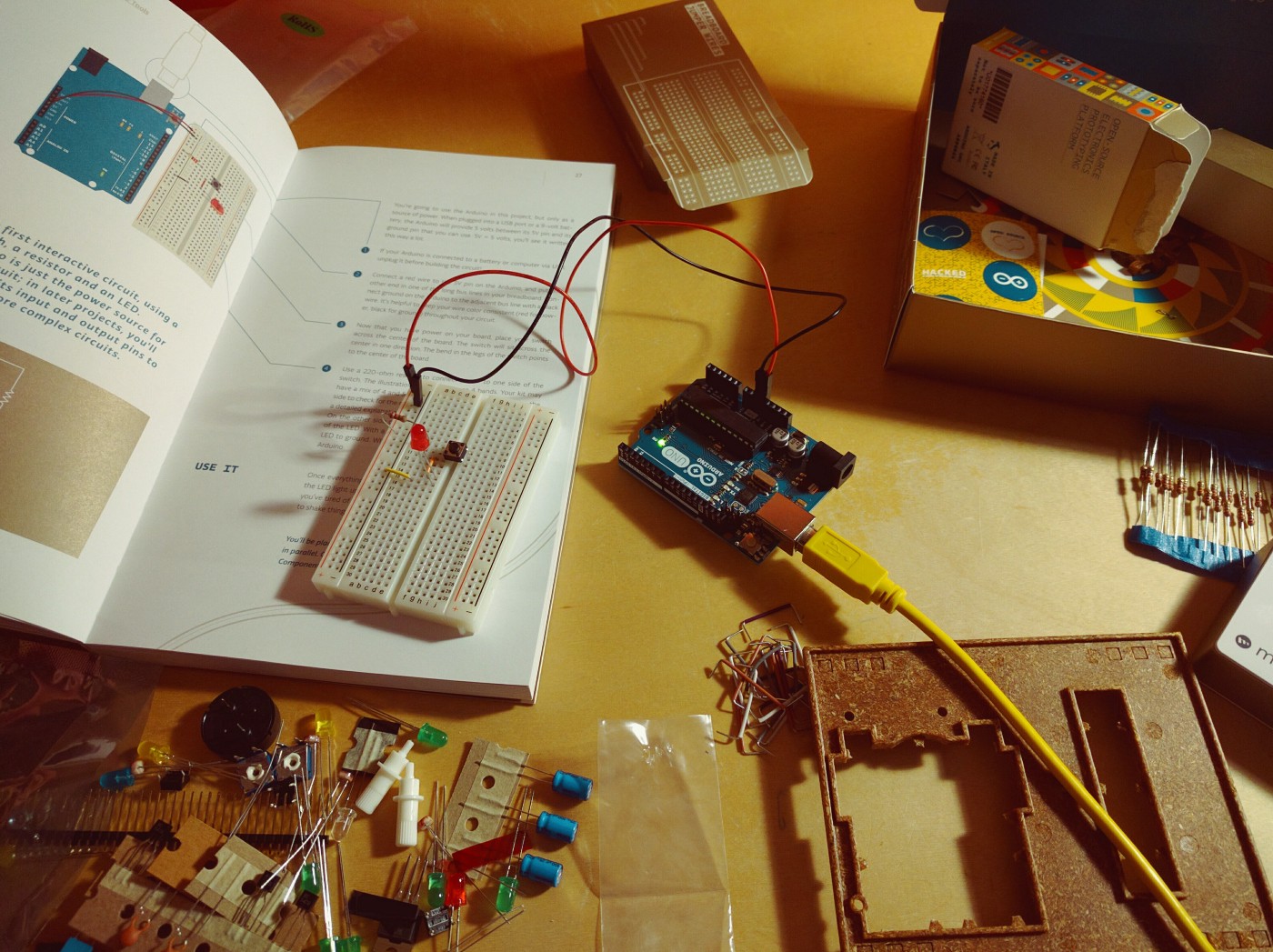
Whether you’re a software engineer, electrical/electronics engineer, power systems engineer, or none of the above, you should really consider giving your child an Arduino (or any other development board) early in life. The immense amount of knowledge your child can gain from doing so far surpasses that of an old smartphone/tablet on which the child will probably mindlessly play Candy Crush and memorize all the Facebook advertisements in existence. If you don’t have any children, consider gifting an Arduino to your friend’s children or to any child from your family. If you don’t know what an Arduino is, you might as well do yourself a favor and buy one for personal use. Let’s dive deeper into the subject:
An Arduino is a small development board that enables you to bring to life many interesting projects from the fields of computer science, electric/electronic engineering, and many other tech fields (chemistry, aeronautics, etc) The possibilities are endless and there are tons of free resources and step-by-step guides online that enable you to do very complex projects without any prior knowledge in any of the fields mentioned above.
This is how an Arduino UNO development board looks like. It’s just a little bit larger than a credit card (other Arduino models are extremely small, the size of a thumb drive) It can be connected to a computer via USB and programmed to do a lot of interesting stuff.
I don’t want to go in-depth about what it can do and how you can set it up, there are tons of tutorials online, just use your favorite search engine and type “top Arduino projects” and you’ll be mesmerized by the ingenious projects people have done over the years. I’ll just mention a few to spark your imagination: remote control cars, weather stations, gaming consoles, smartwatches,etc.
There are MANY development boards out there. And I mean MANY. It can be overwhelming to choose one to start with, but considering how cheap the starter ones are, I recommend you look up Arduino UNO and Arduino Nano for starters. If you have web development/networking in mind it might not hurt to check out ESP8266 development boards. Any will do. If you’re into Python you might consider looking at the STM32, but that’s already advanced territory.
Amazon, AliExpress, Ebay, Local stores, you name it. It doesn’t have to be original, it can be a clone, actually I don’t recommend spending more than 10$ if it’s your(or your child’s) first board. The clones need an extra step when you set them up, but there is plenty of info about that on the internet. I’ll leave an AliExpress link for you:
Excellent question, let us dive in the actual subject of this article! I got my first development board later in life, but from that point on I’ve learned a lot from it. There are an overwhelming number of positive aspects to learning how to use an Arduino. I’ll try to highlight the most important ones.
- You can get programming skills, from beginner to programming grand master, by doing Arduino projects(low level/high level programming, objective/functional, from binary to APIs, you name it).
- You get introduced to the open source software community and it’s concepts.
- You gain great knowledge in the field of electrical/electronics engineering(depending on your projects of choice, you can gain knowledge on soldering, PCB design, sensors, data acquisition,etc) .
- You gain great knowledge in other tech fields, depending on what projects you decide to do with it.
- You do all of the above in a fun, easy to understand manner, learning from very well-documented resources that explain every step in great detail (again, just search the web for Arduino projects). It’s a really good way to gain skills not just for hobby purposes but for career purposes too. The skills you gain by playing with an Arduino can actually land you a job (many other factors at play here)
Another key aspect of playing with a development board is that it helps your child(or you) to get a feel of which tech domain they feel like specializing themselves in.
Also, you can start an Arduino project together with your child and it can be an excellent bonding experience.
I often make the following jokes on the matter:
Give your child an Arduino.
- If your child programs it to calculate the Sun’s orbital trajectory, but doesn’t connect any hardware to it, he’ll be a successful Software Engineer.
- If he made a multi-functional hybrid oscilloscope out of it, but copy-pasted all the code from the Internet, he’ll be a successful Electronics Engineer
- If he made a solar charged car out of it, but still copy-pasted the code from the Internet, he’ll be a successful Electrical Engineer
- If he plugged it into the mains power grid, tripping off the breaker without frying the board, he’ll be a successful Power Systems Engineer
- If he submerged the Arduino into acid, and the Arduino still works, he’ll be a successful Chemical Engineer
I could stretch the joke over a few more domains, but you get the point.
You can offer your child a better future by simply giving them a development board that might bring out their true passion and make them really smart, it might even set up a career path for them. If you invest time in it too, you can tighten your bond with your child, and in a world full of toxic habits, you can find a healthy hobby that keeps your mind engaged.
